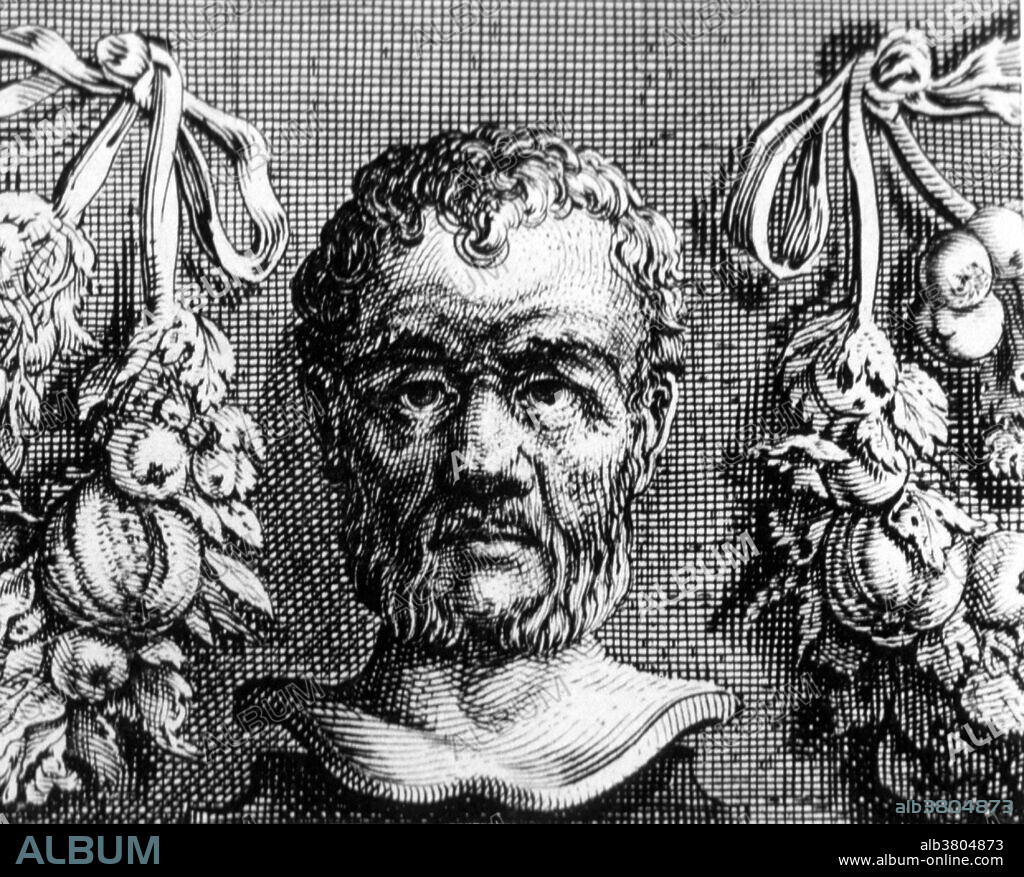alb3804873
Theophrastus, Ancient Greek Polymath

|
Zu einem anderen Lightbox hinzufügen |
|
Zu einem anderen Lightbox hinzufügen |



Haben Sie bereits ein Konto? Anmelden
Sie haben kein Konto? Registrieren
Dieses Bild kaufen

Titel:
Theophrastus, Ancient Greek Polymath
Untertitel:
Siehe automatische Übersetzung
Theophrastus (371 - 287 BC) was a Greek philosopher and successor to Aristotle in the Peripatetic school. He came to Athens and studied in Plato's school. After Plato's death, he attached himself to Aristotle. Aristotle bequeathed to Theophrastus his writings and designated him as his successor at the Lyceum. He presided over the Peripatetic school for 36 years, during which time the school flourished greatly. He is often considered the "father of botany" for his works on plants. After his death, the Athenians honored him with a public funeral. The interests of Theophrastus were wide ranging, extending from biology and physics to ethics and metaphysics. His two surviving botanical works, Enquiry into Plants and On the Causes of Plants, were an important influence on medieval science. There are also surviving works On Moral Characters, On Sensation, On Stones, and fragments on Physics and Metaphysics all written in Greek. In philosophy, he studied grammar and language and continued Aristotle's work on logic. According to Diogenes he died at the age of 85.
Bildnachweis:
Album / NLM/Science Source
Freigaben (Releases):
Model: Nein - Eigentum: Nein
Rechtefragen?
Rechtefragen?
Bildgröße:
4500 x 3622 px | 46.6 MB
Druckgröße:
38.1 x 30.7 cm | 15.0 x 12.1 in (300 dpi)
Schlüsselwörter:
BERÜHMT • BERÜHMTE PERSÖNLICHKEIT • BOTANIK • ETHIK • GRAMMATIK • GRAMMATIKER • ILLUSTRATION • ILLUSTRATIONS • LOGIK • MANN • METAPHYSIK • NATURKUNDE • NATURWISSENSCHAFT • NOTABEL • PERSON • PERSöNLICHKEITEN • PERSÖNLICHKEITEN • PHILOSOPHIE • PORTRAIT • PROMINENZ • WISSENSCH.: PHILOSOPHIE
 Pinterest
Pinterest Twitter
Twitter Facebook
Facebook Link kopieren
Link kopieren Email
Email
